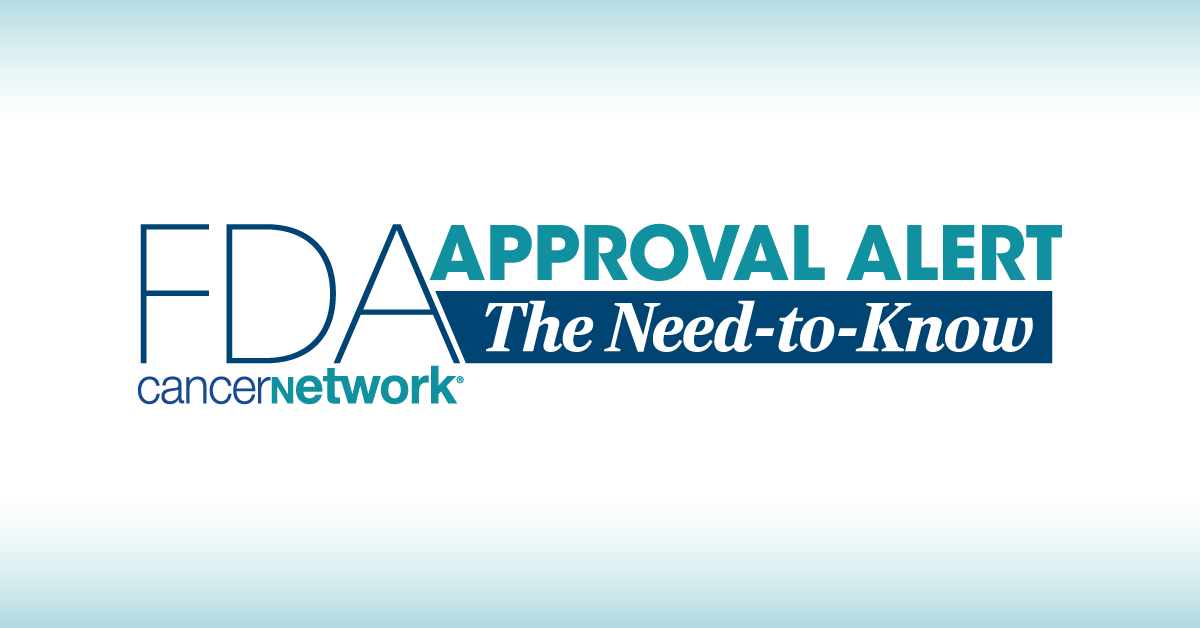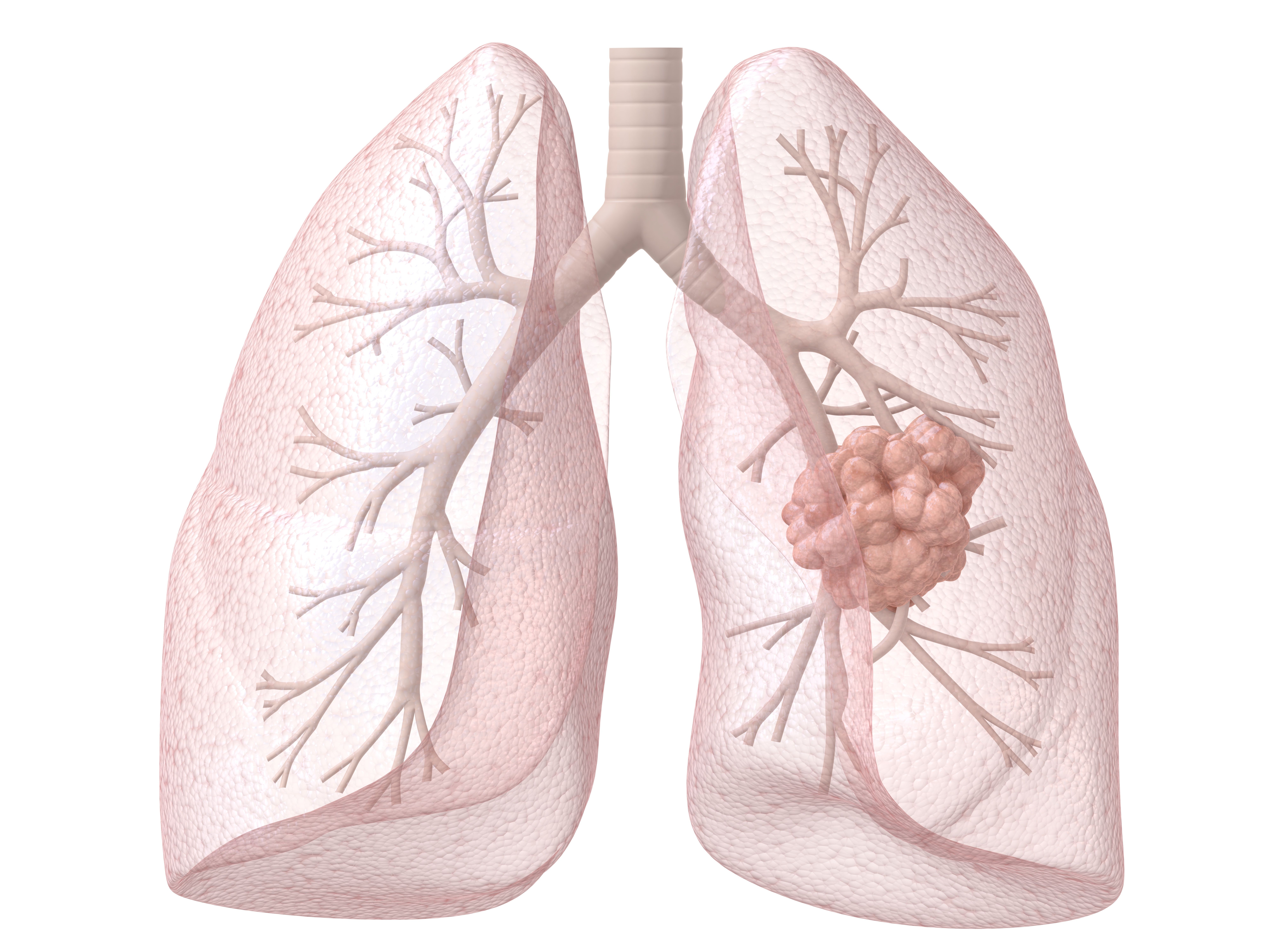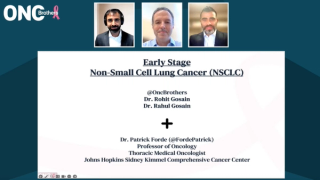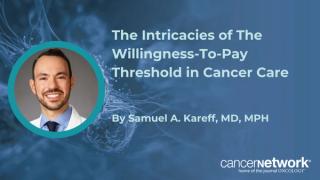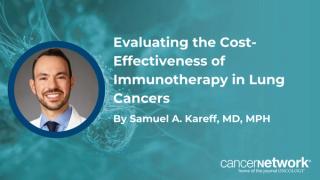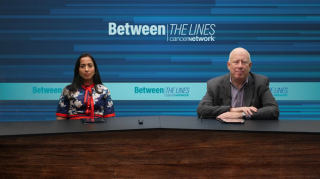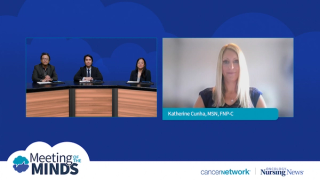
Non-Small Cell Lung Cancer (NSCLC)
Latest News
Video Series

Latest Videos
Podcasts
More News

FDA Grants RMAT Designation to HSV-Based Immunotherapy in NSCLC
Early data from the KYANITE-1 study support the RMAT designation for KB707 as a treatment for those with advanced or metastatic NSCLC.

Infusing chemoimmunotherapy earlier in the day also correlated with improvements in responses among patients with NSCLC in a phase 3 trial.

The FDA has assigned a Prescription Drug User Fee Act date of November 14, 2026, for the ivonescimab-based combination.

Data from a phase 2 study support metabolic response on PET/CT and ctDNA clearance as potential biomarkers for predicting event-free survival.

Data from the phase 2 FIRM study support the preliminary potential of firmonertinib as frontline therapy in EGFR L858R-mutated NSCLC.

Data from the phase 2 ALTER-L043 trial may support the viability of perioperative penpulimab-based treatment in resectable non–small cell lung cancer.
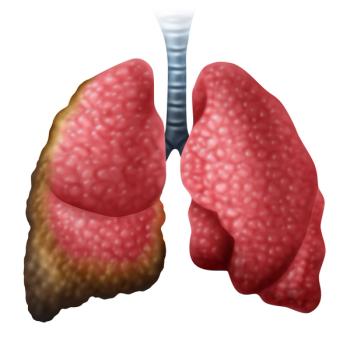
Data from the QUILT-3.055 and QUILT-2.023 studies support the accelerated approval of the nogapendekin alfa inbakicept regimens in Saudi Arabia.

Investigators will submit detailed results from the QUILT-2.023 and QUILT-3.055 trials for peer-reviewed publication and future scientific presentations.

Osimertinib plus chemotherapy improved overall survival across various subgroups in the phase 3 FLAURA2 trial, including those with CNS metastases.

Data from the phase 3 HARMONi trial support the application for the ivonescimab regimen in this EGFR-mutated NSCLC population.
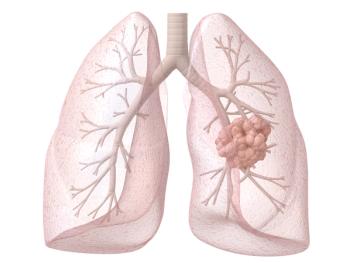
Supporting data for zoldonrasib’s breakthrough therapy designation in NSCLC came from the phase 1 RMC-9805-001 trial.

Neoadjuvant immunotherapy plus chemotherapy did not definitively increase the risk of severe pneumonitis compared with adjuvant immunotherapy.

Patients with HER2-mutant NSCLC who were naïve to systemic therapy for advanced disease experienced positive results following treatment with sevabertinib.

Investigators Launch Phase 3 Trial of Calderasib Combo in Advanced NSCLC
The randomized KANDLELIT-007 trial will enroll approximately 675 patients with advanced non–small cell lung cancer across the world.
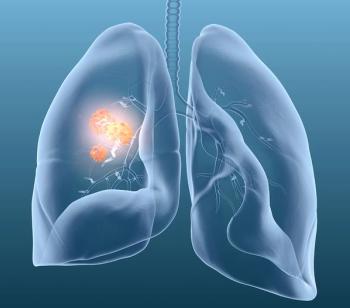
Patients currently enrolled on the RAMP 203 trial will have the option of continuing treatment with the avutometinib regimen per investigator discretion.

Treatment with ceralasertib plus durvalumab was found to be well tolerated among patients enrolled on the phase 3 LATIFY trial.

OncoPrism-NSCLC Test Predicts Key Clinical Outcomes in Lung Cancer
OncoPrism-NSCLC was found to be a predictive biomarker of immune checkpoint inhibitor benefit vs a general prognostic tool in patients with NSCLC.

Data from the phase 3 PALOMA-3 study support the approval of subcutaneous amivantamab in this NSCLC population.

Discover the latest breakthroughs in non-small cell lung cancer treatment from the 2025 WCLC, featuring competitive insights from leading experts.

Experts discuss the proper placement of Dato-DXd in the treatment of EGFR-mutated non–small cell lung cancer, comparing it with other potential treatments.

Patients with squamous NSCLC who received ivonescimab plus chemotherapy as first-line treatment had delayed deterioration in global health status.

The latest advancements in bispecific antibodies and antibody-drug conjugates continue to improve the personalized treatment of advanced non-small cell lung cancer.

Zenocutuzumab Yields Durable Responses in Treatment-Naive NRG1+ NSCLC
Across 20 patients with treatment-naive NSCLC enrolled in the eNRGy trial who received zenocutuzumab, the ORR was 35%, with a median DOR of 17.1 months.

In the amivantamab/lazertinib arm, the median OS in the Asian population was not reached vs 38.4 months in the osimertinib arm for patients with EGFR-mutated NSCLC.

Developers have outlined plans to initiate a randomized phase 2 trial evaluating silevertinib in patients with newly diagnosed glioblastoma.


